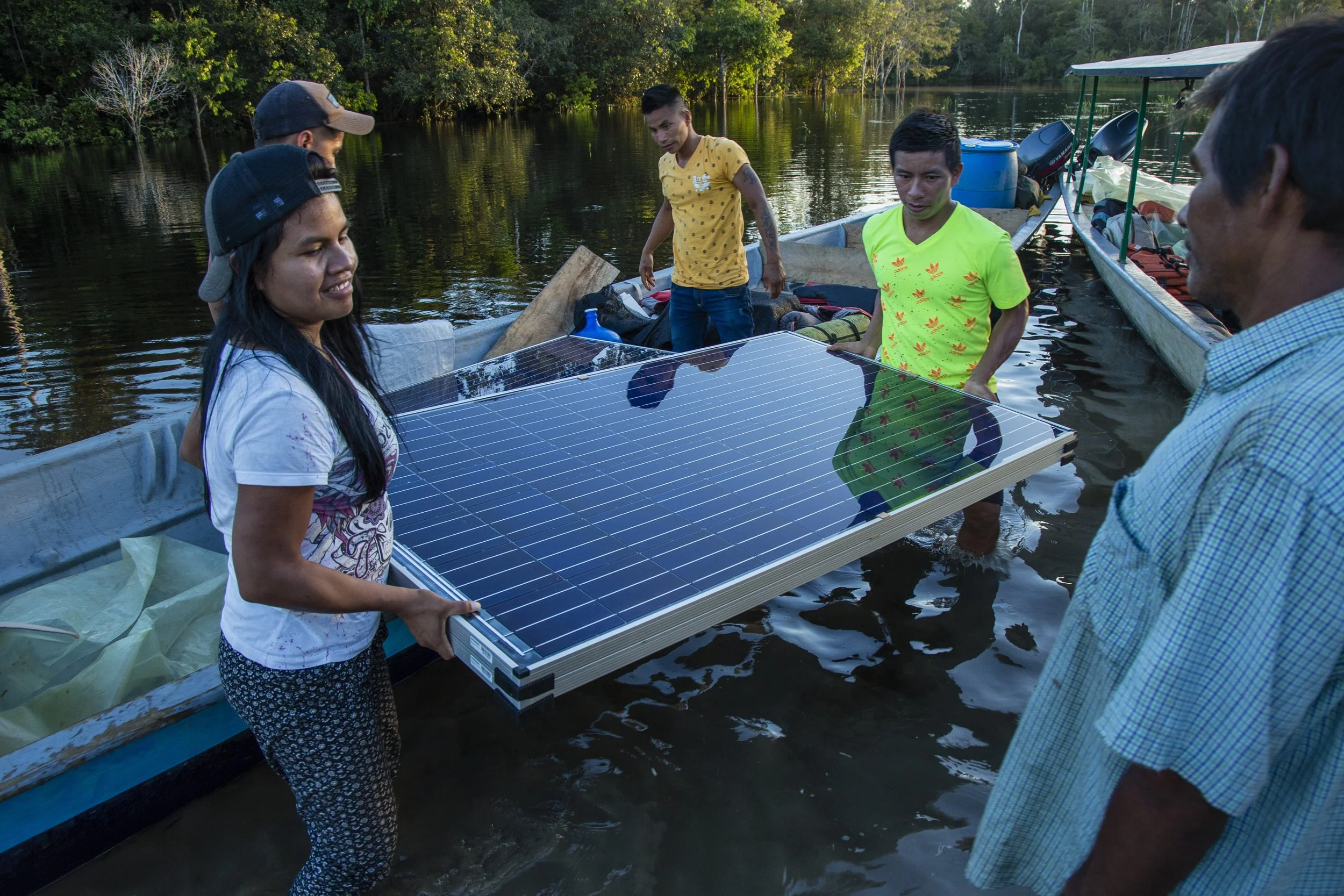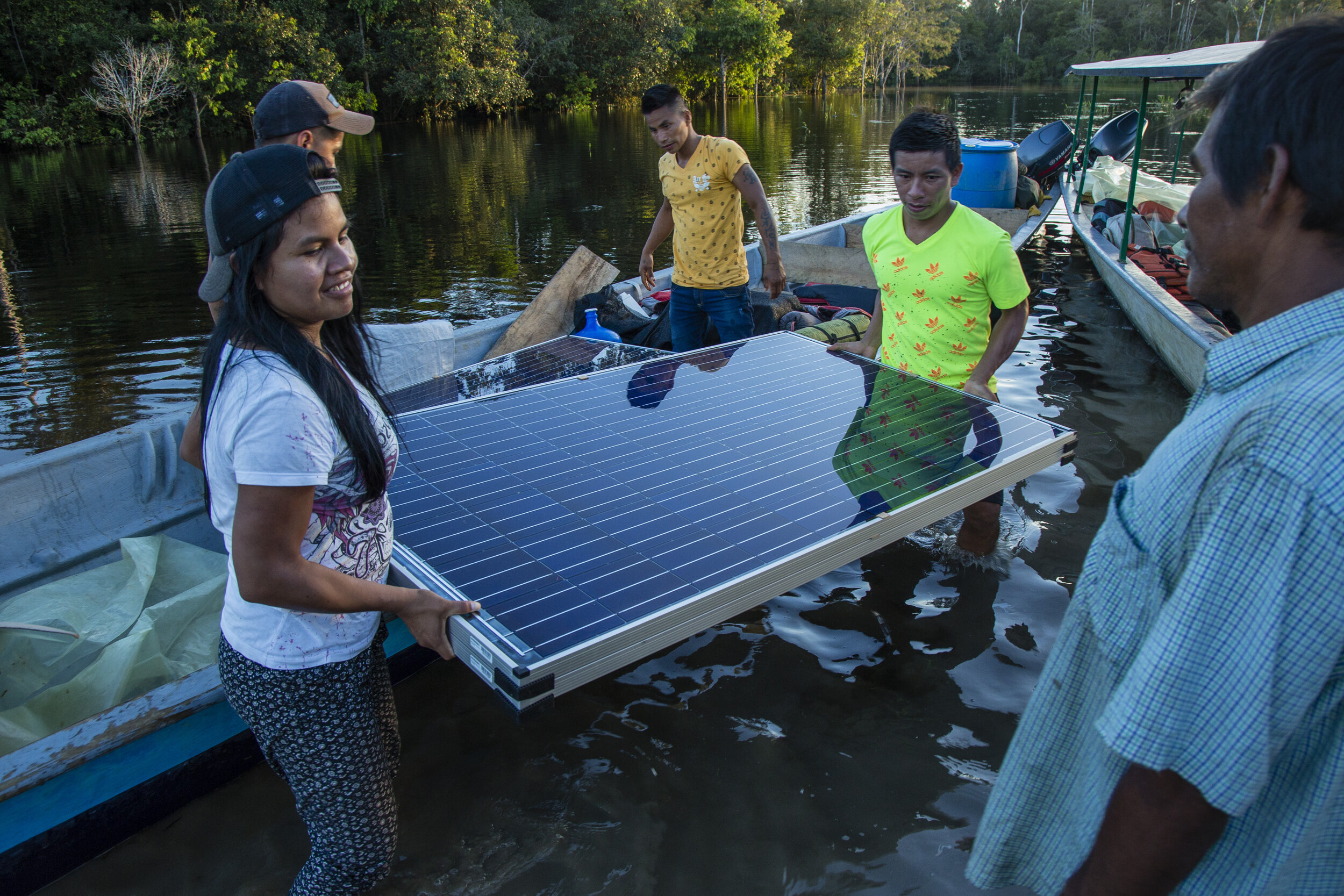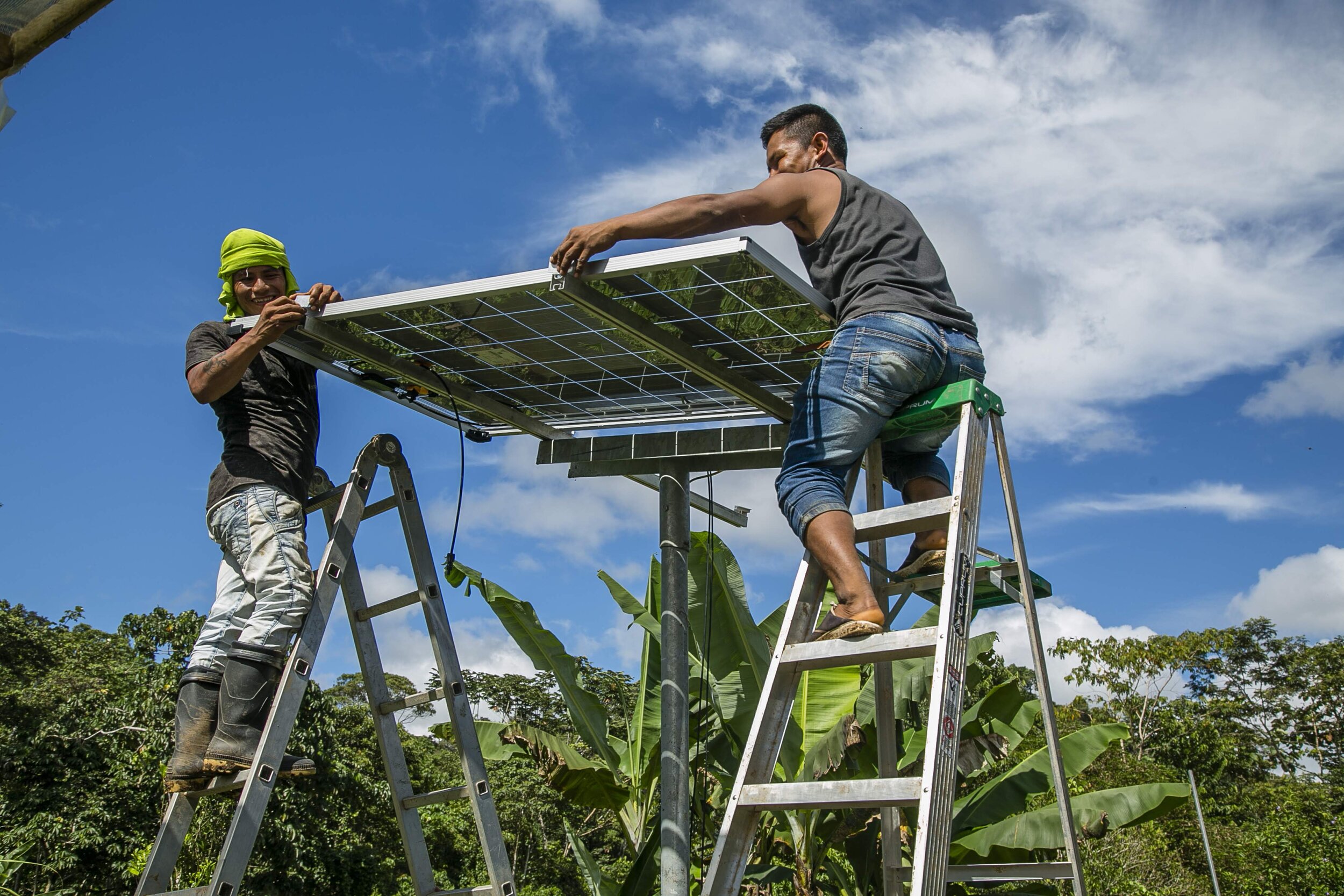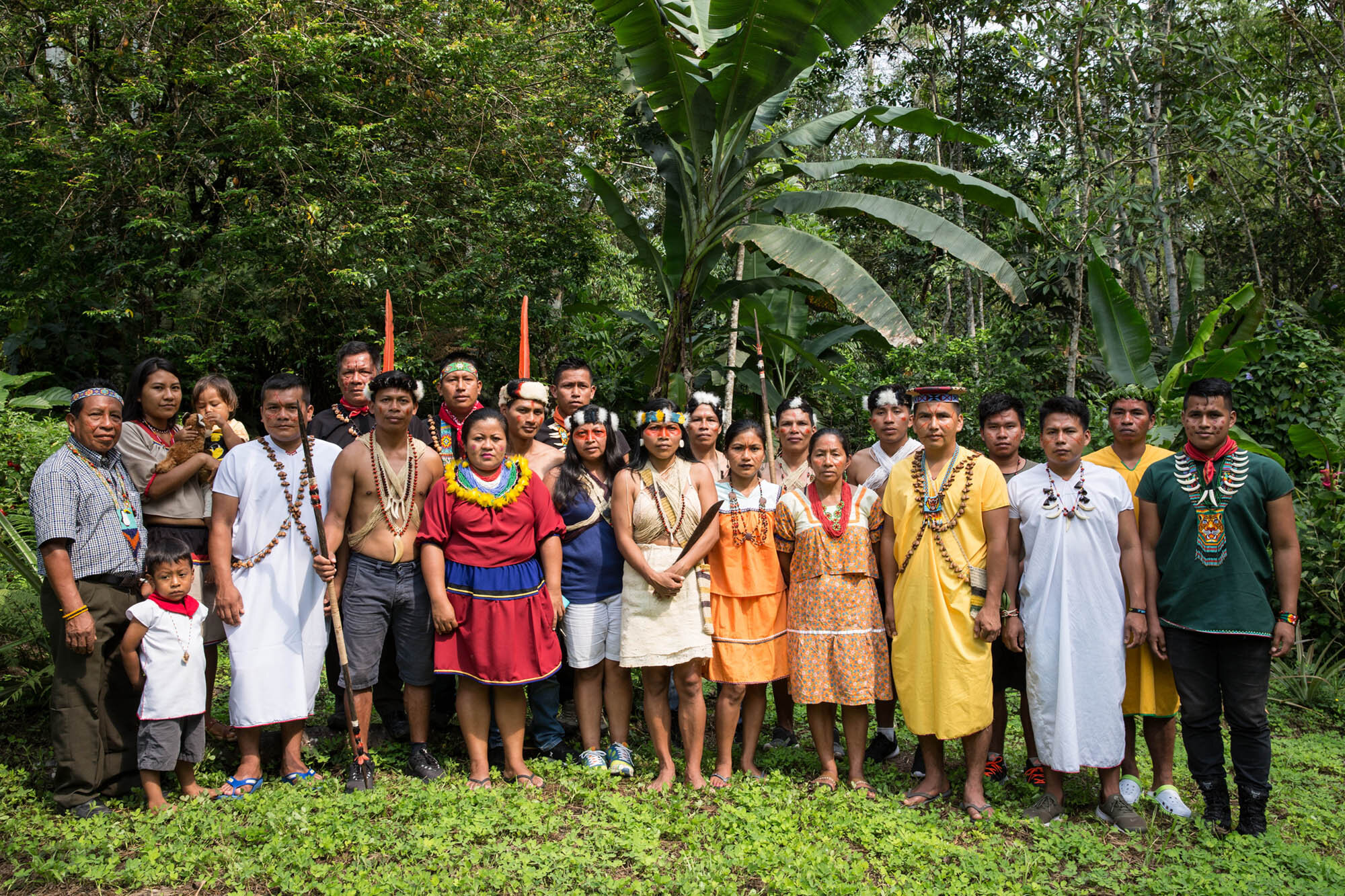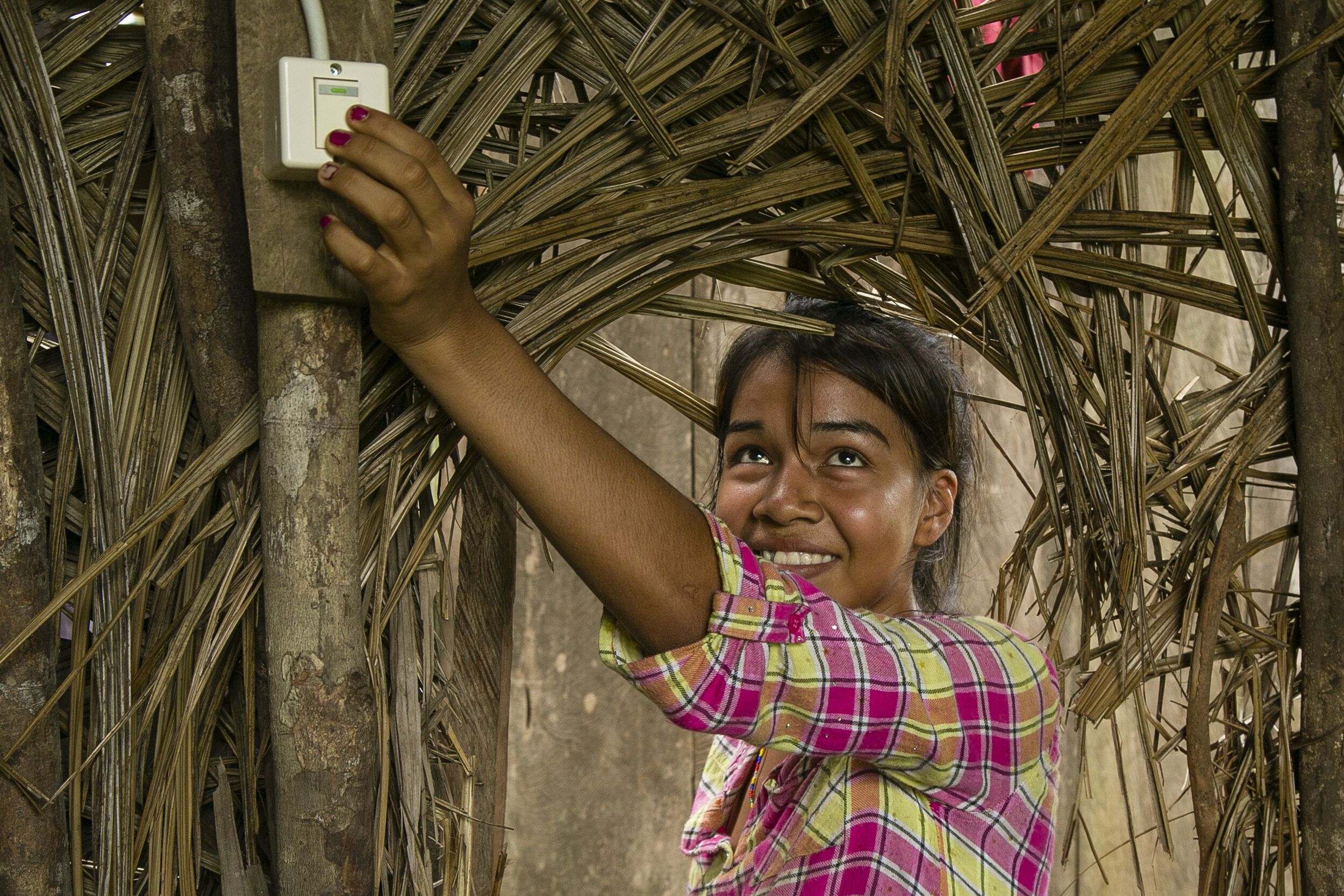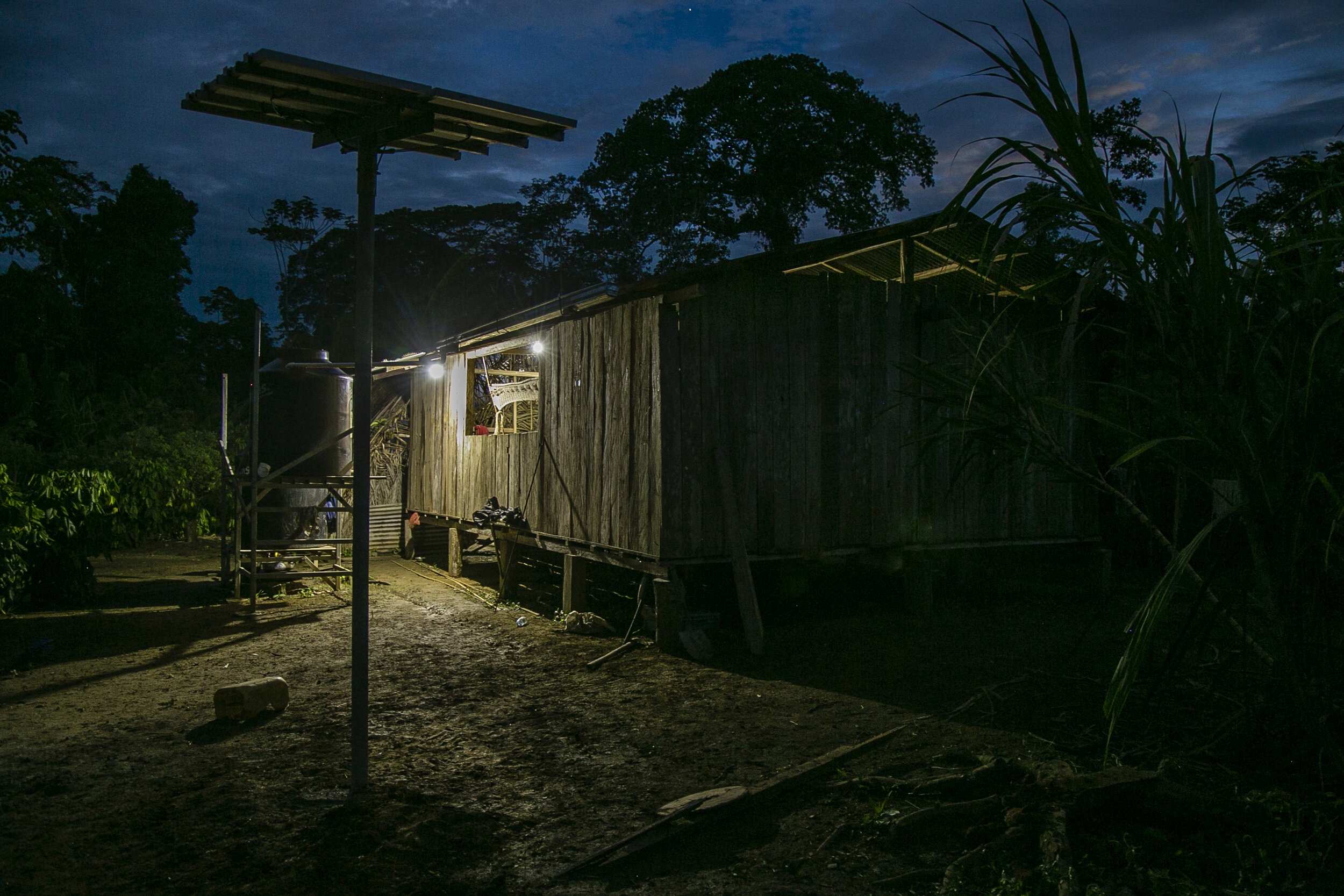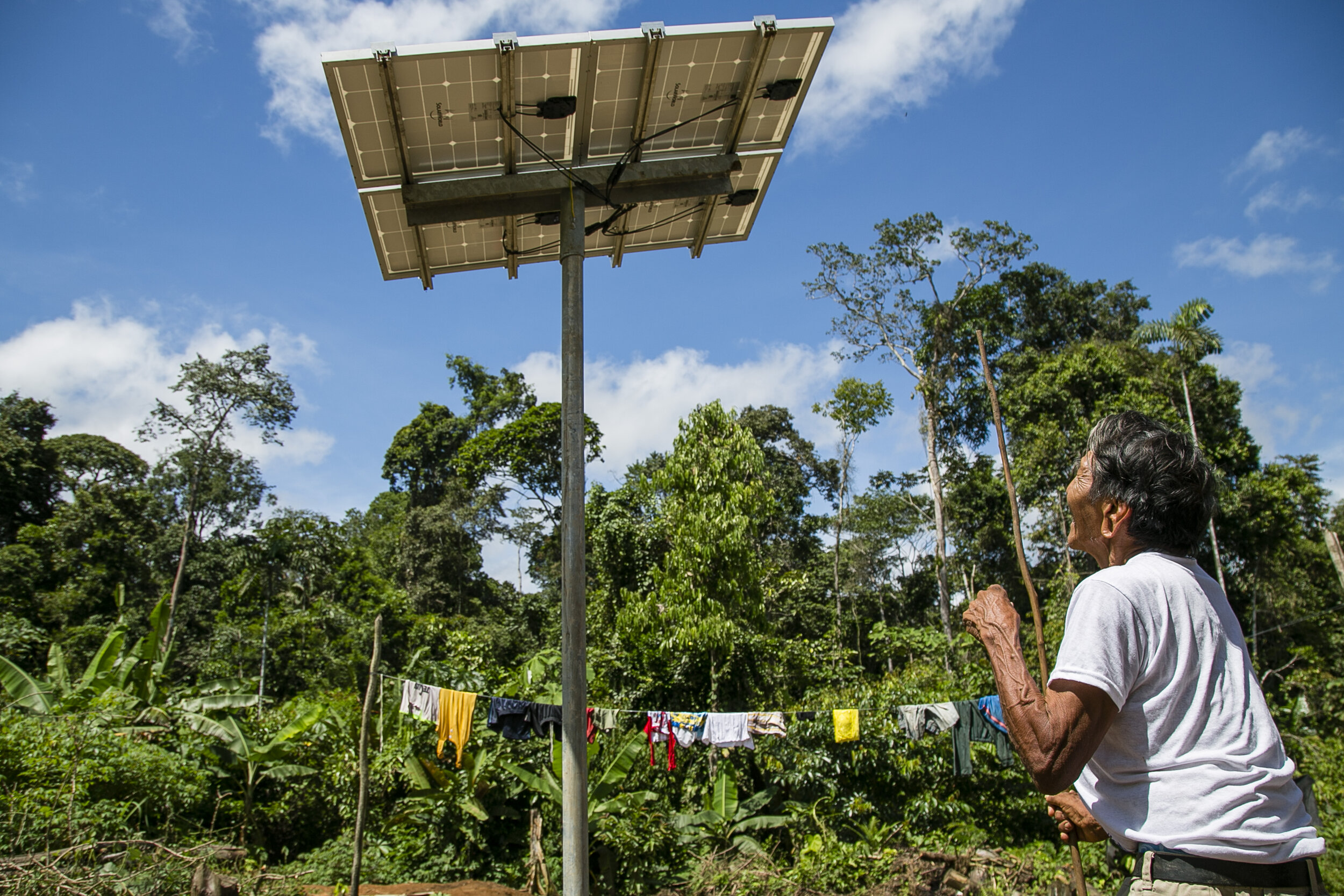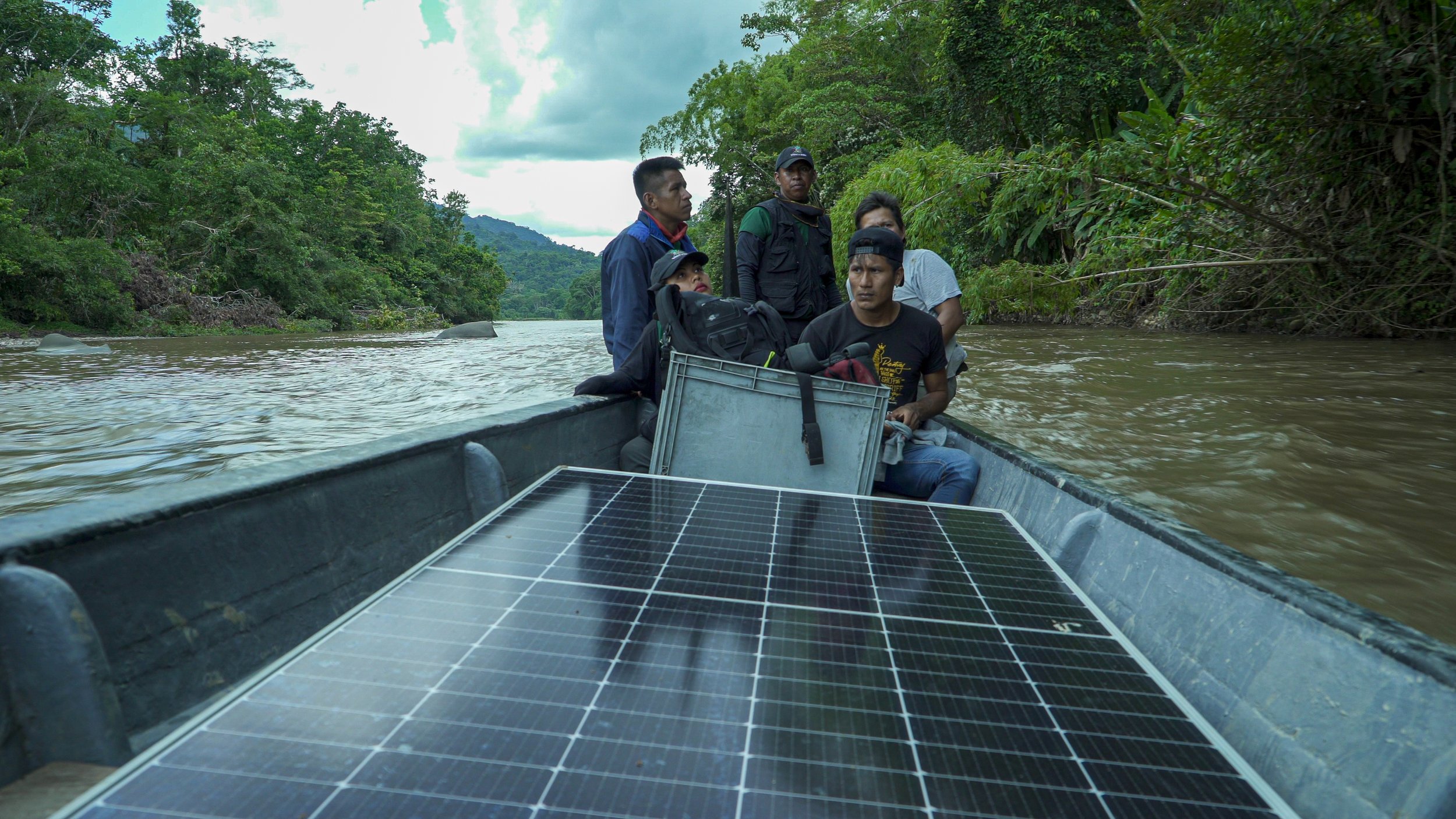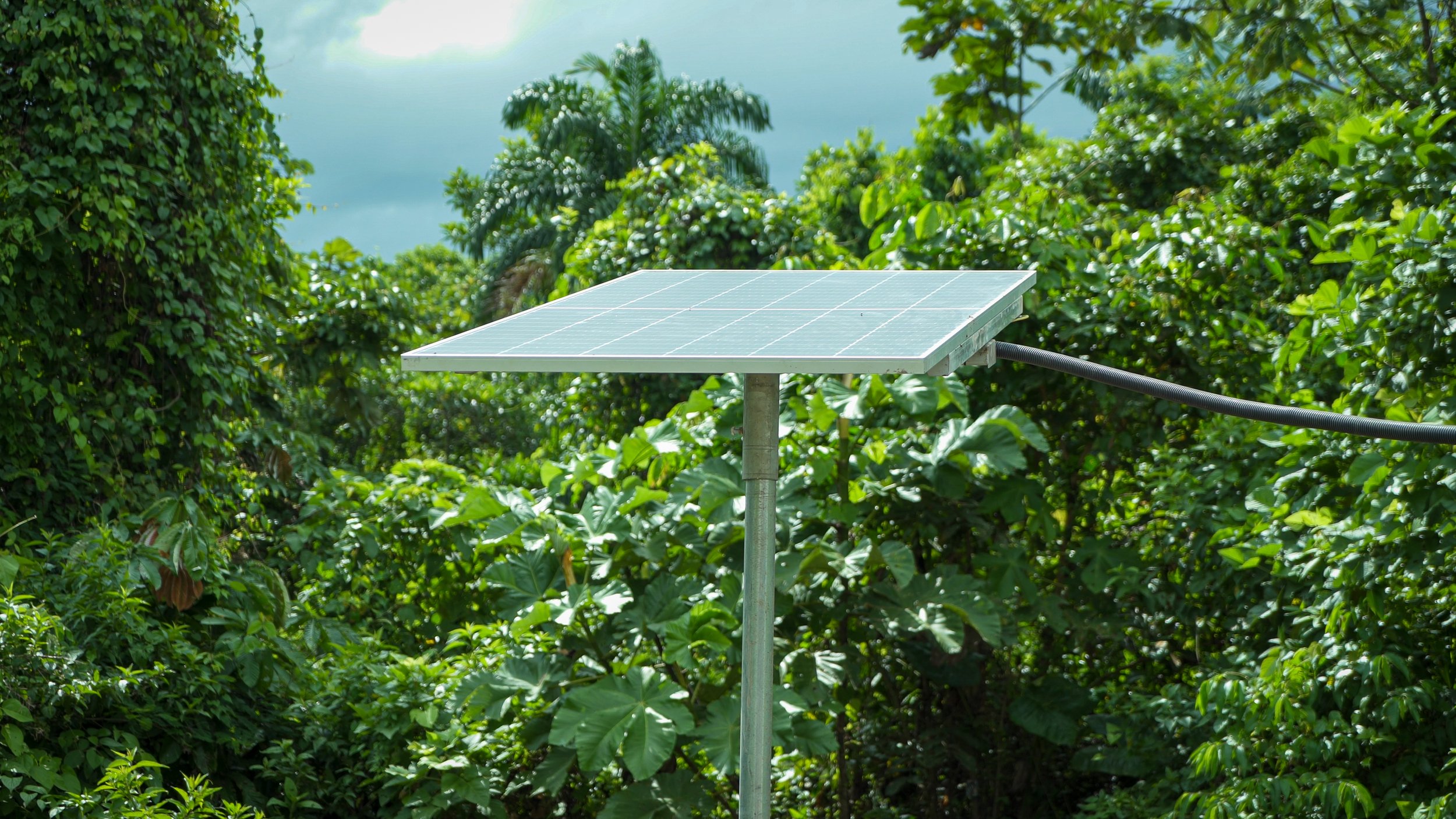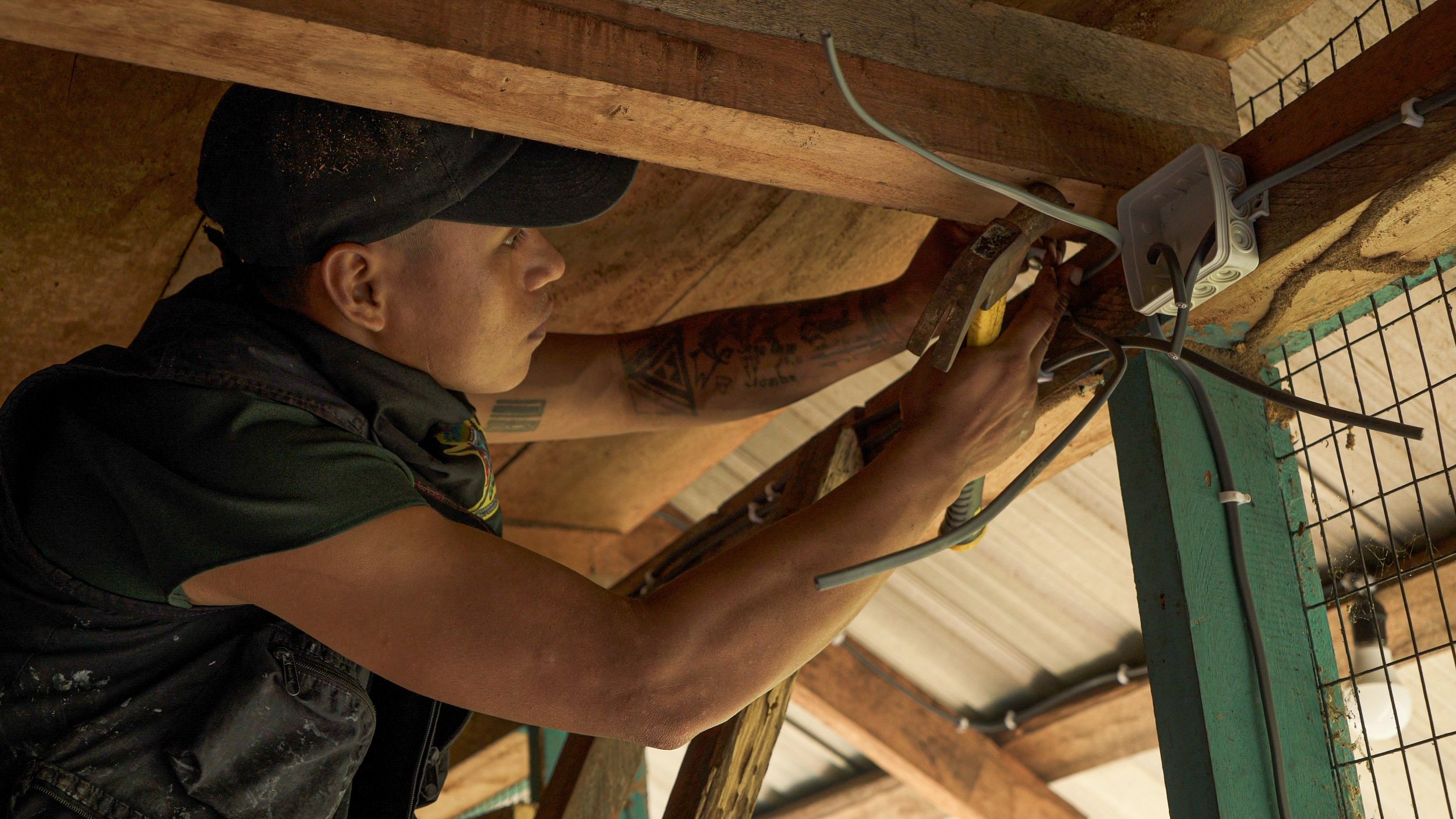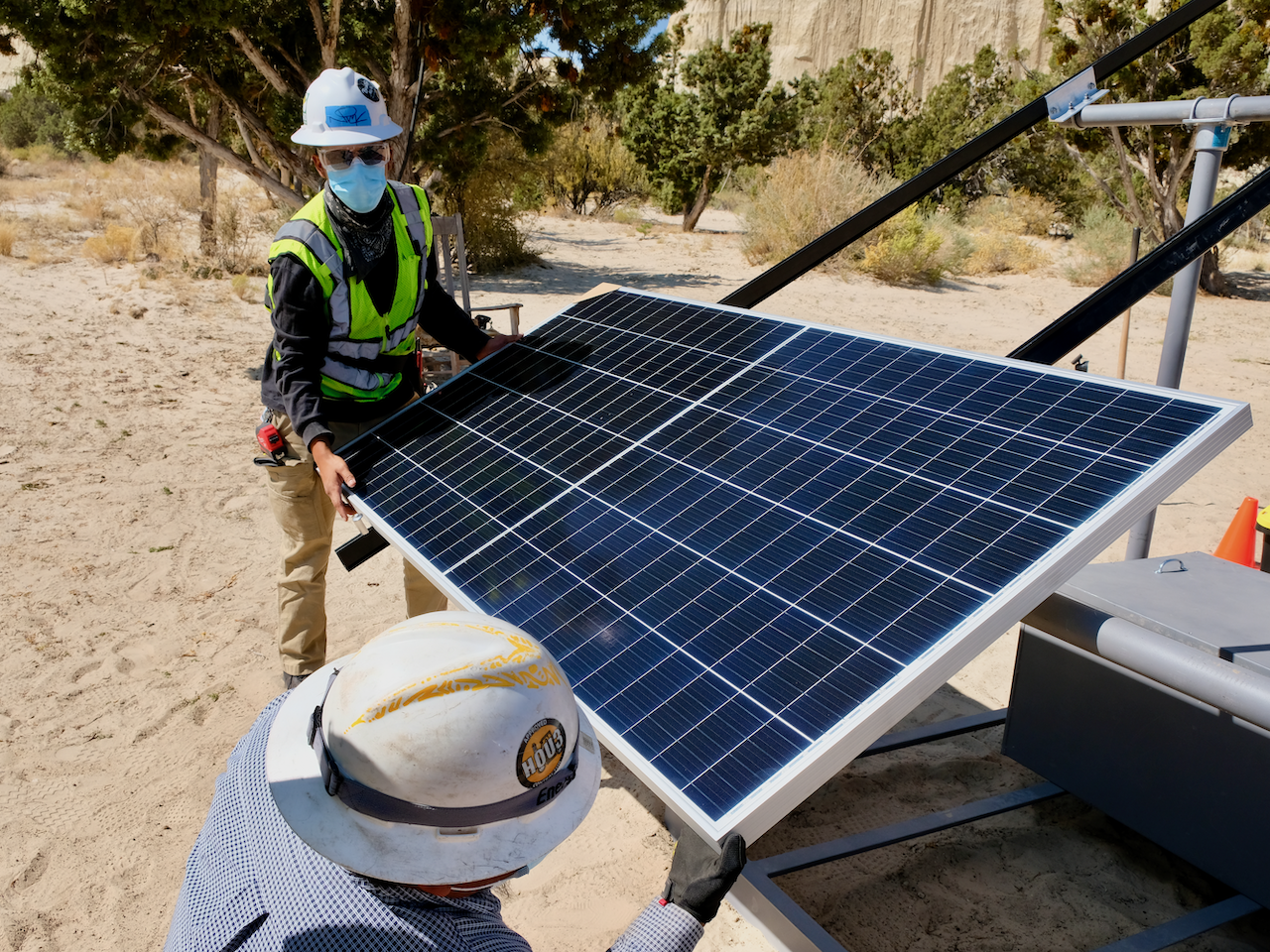Impact Spotlight
Rooftop solar installs for 9 patrol stations and 13 communities
Protection for 580,000 acres of rainforest
Access to clean water for 1,164 indigenous families impacted by oil contamination
About
Indigenous peoples in the Upper Amazon have undergone an intense and violent history of genocide and colonization over the past 500 years. Today, their rainforest territories and traditional ways of life are threatened by resource extraction, and they find themselves marginalized and excluded from economic opportunities, job training, education, healthcare, telecommunications, and electricity. Often, access to these services is offered by extractive companies in exchange for the right to operate on indigenous lands. Building access to solar energy can provide remote, roadless communities with access to the clean, sustainable energy they need.
Ceibo Alliance is an unprecedented alliance between members of the four Indigenous nationalities— the Kofán, Siekopai, Waorani, and Siona, formed when members came together to build access to clean water for their oil-impacted communities. Today, Ceibo Alliance has 30 full-time Indigenous staff members and supports Indigenous territorial defense, cultural survival, and community resilience, including access to clean water and solar energy.
“Solar energy means autonomy and self-sufficiency for our communities. It strengthens our efforts to protect our forests, to revitalize traditional practices, and to reinforce leadership of our women and youth in our work to build resilient communities against future crises.”
HF Partnership
In 2022, the Honnold Foundation has partnered with Ceibo Alliance to scale their solar installations with Indigenous communities across the Upper Amazon. In addition to assisting with vital land defense initiatives, installs across 13 communities, many of them roadless, aid in economic development, increase education opportunity, and power communications infrastructure— a key need identified by community members in the wake of the COVID-19 pandemic.
In 2021, the Honnold Foundation supported the expansion of Ceibo Alliance’s existing off-grid solar installations, supplying nine of their critical land patrol stations and 15 families with battery-backed solar PV systems.
In addition to the installations, Ceibo train indigenous community members as solar technicians who will build and maintain the systems in their own communities. Rather than hiring external technicians who leave once the job is done, community members are empowered with the knowledge they need to keep the systems working for the long term.
In the News

